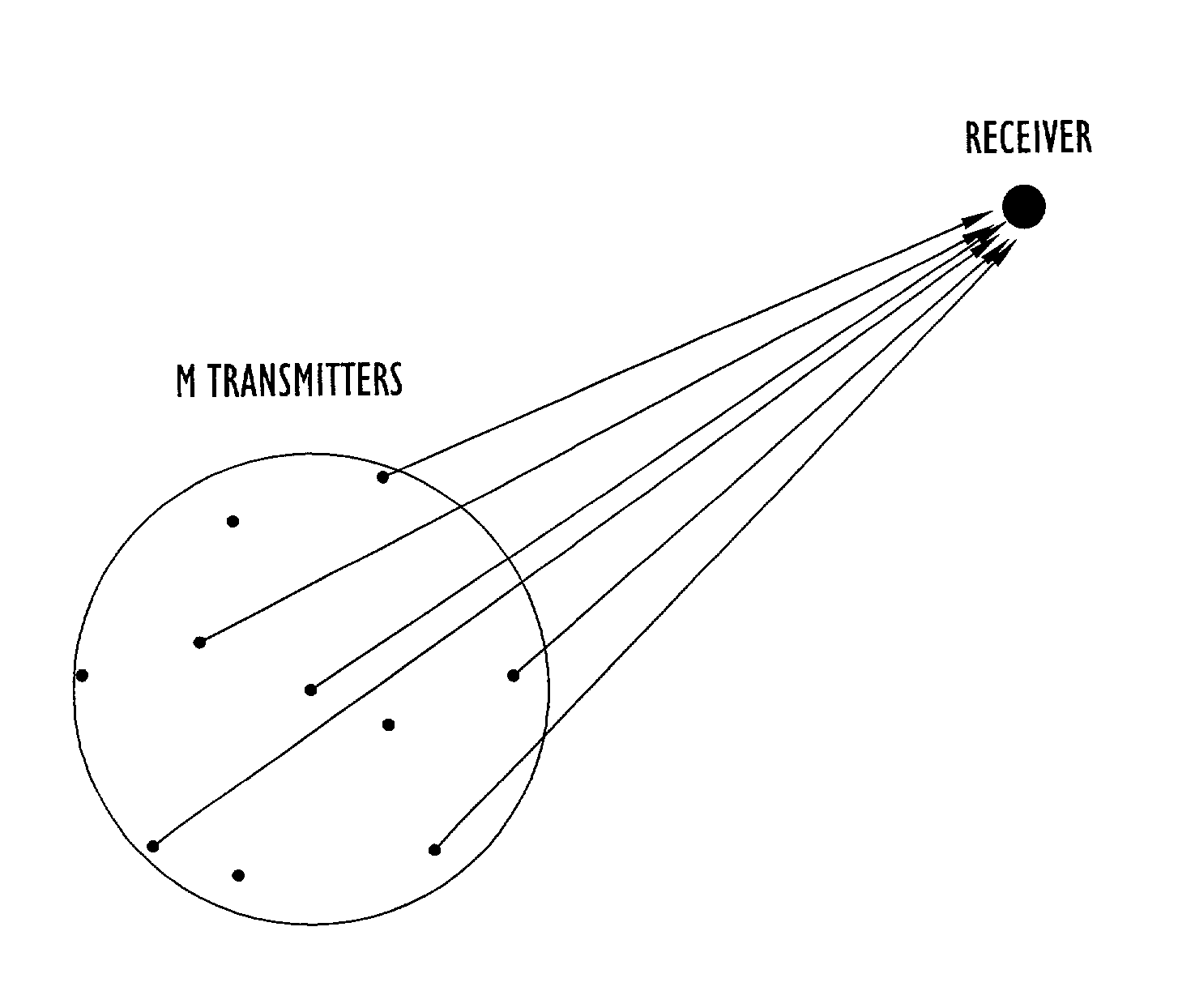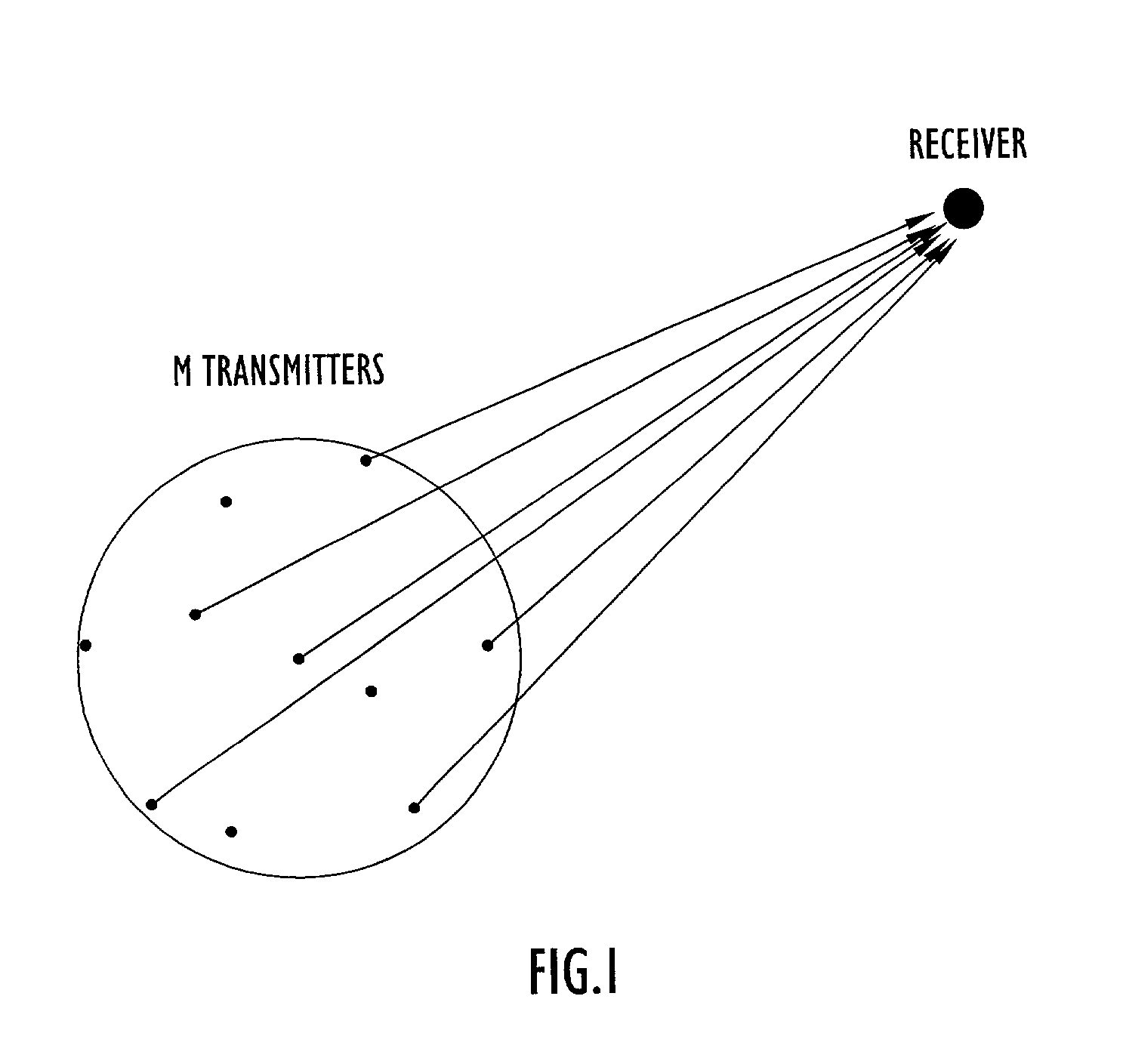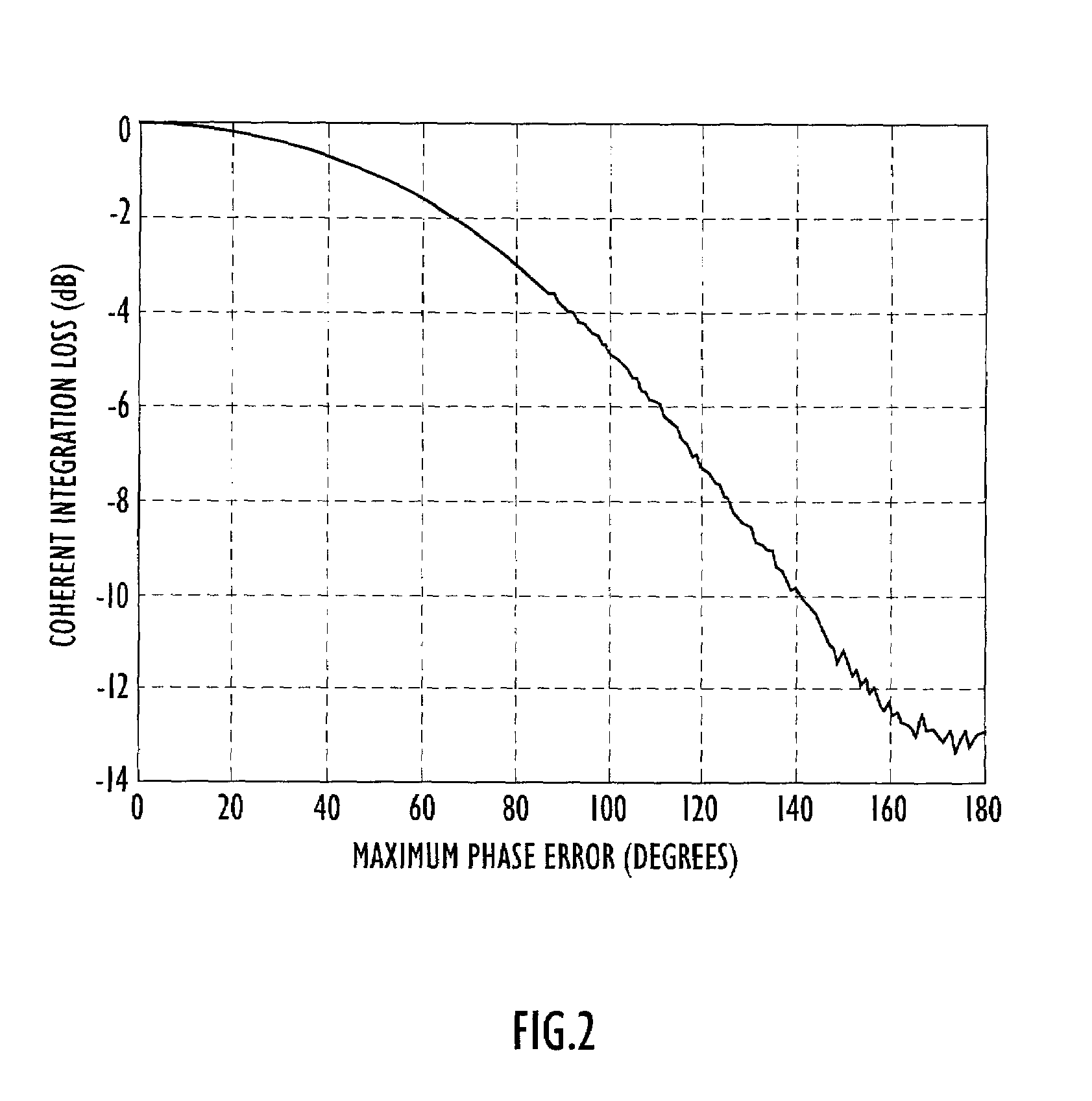Methods and apparatus for synchronously combining signals from plural transmitters
a technology of synchronous combining and transmitting signals, applied in diversity/multi-antenna systems, multi-frequency code systems, site diversity, etc., can solve the problems of increasing attenuation of signal strength at the receiving device, prohibiting reception, and limited equipment capabilities, so as to enhance the range performance of a group
- Summary
- Abstract
- Description
- Claims
- Application Information
AI Technical Summary
Benefits of technology
Problems solved by technology
Method used
Image
Examples
Embodiment Construction
[0026]The present invention involves a signal combining technique in which signals are transmitted in a coordinated manner from plural communication devices in relatively close proximity to each other (e.g., a “cluster” of devices) to a receiving communication device which coherently combines the signals as if they were different multipath rays of a single transmission. The combined signal power enables reception of signals over ranges far greater than would otherwise be possible with a single device transmitting at the same single-device power level.
[0027]The signal combining concept of the present invention uses the collective resources of a number of communication devices by synchronizing or coordinating transmission and reception of signals. Proper coordination enables the cluster of communication devices to collectively transmit the same information-bearing signals, such that an intended receiver can process the received signals to significantly improve the communications perfo...
PUM
 Login to View More
Login to View More Abstract
Description
Claims
Application Information
 Login to View More
Login to View More - R&D
- Intellectual Property
- Life Sciences
- Materials
- Tech Scout
- Unparalleled Data Quality
- Higher Quality Content
- 60% Fewer Hallucinations
Browse by: Latest US Patents, China's latest patents, Technical Efficacy Thesaurus, Application Domain, Technology Topic, Popular Technical Reports.
© 2025 PatSnap. All rights reserved.Legal|Privacy policy|Modern Slavery Act Transparency Statement|Sitemap|About US| Contact US: help@patsnap.com



